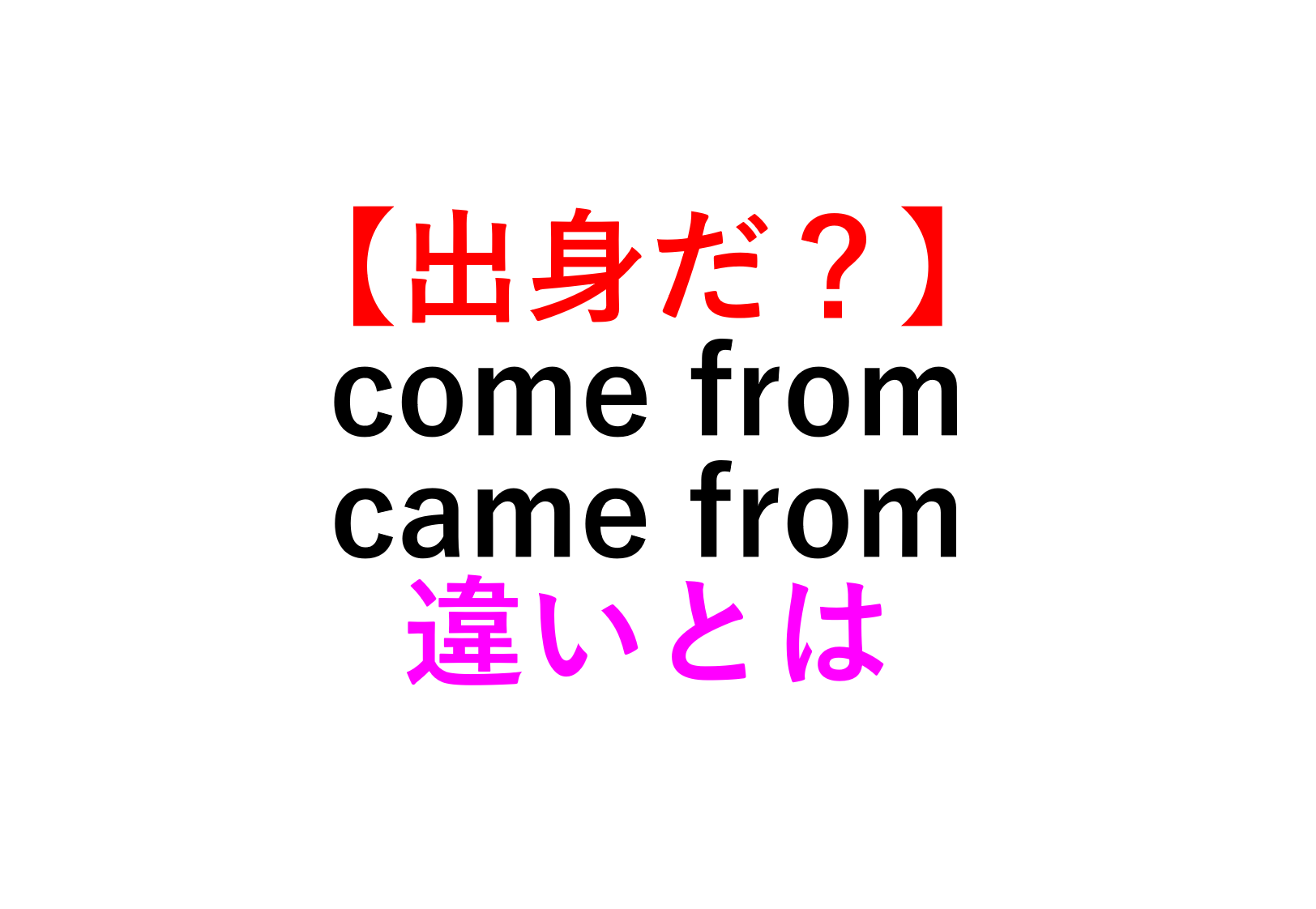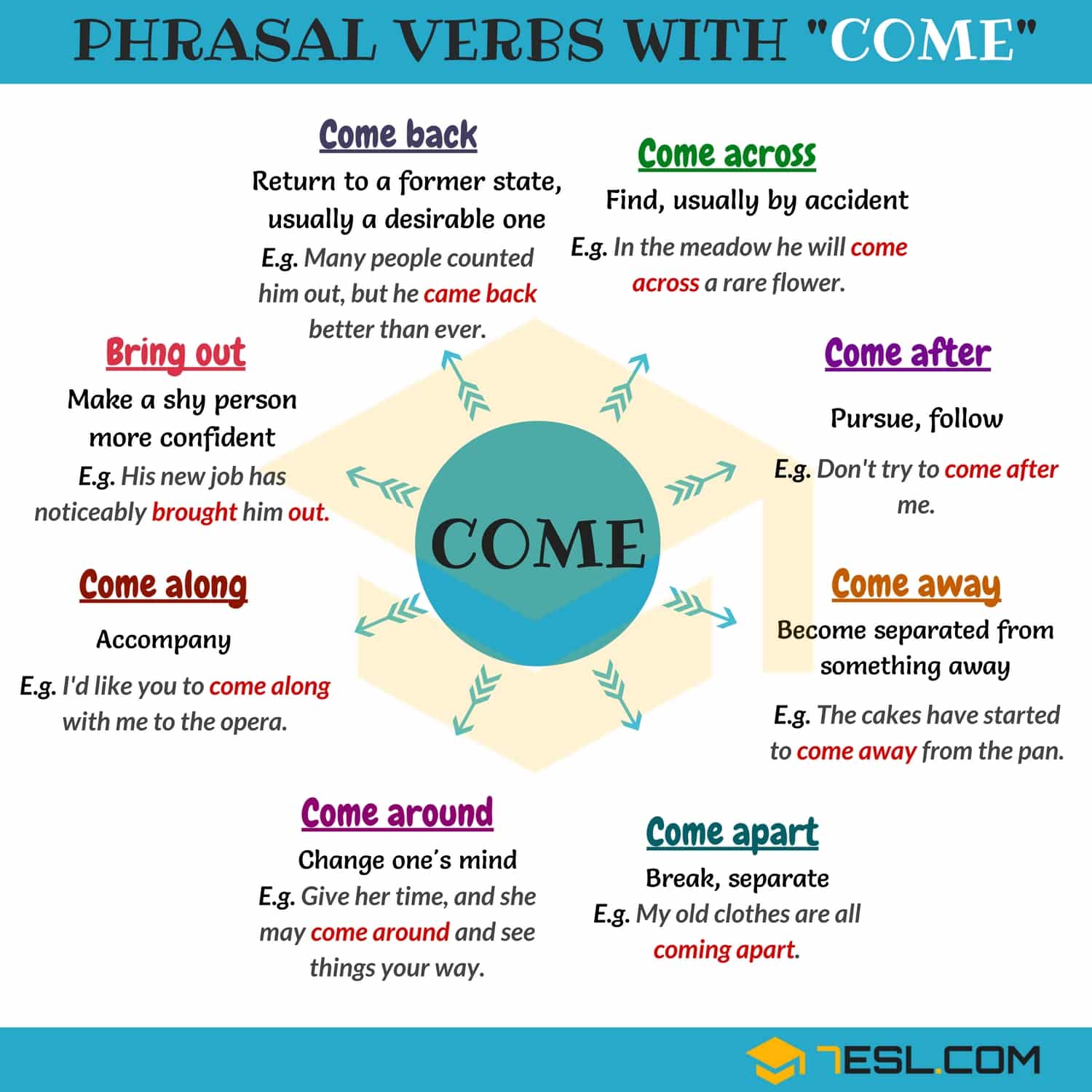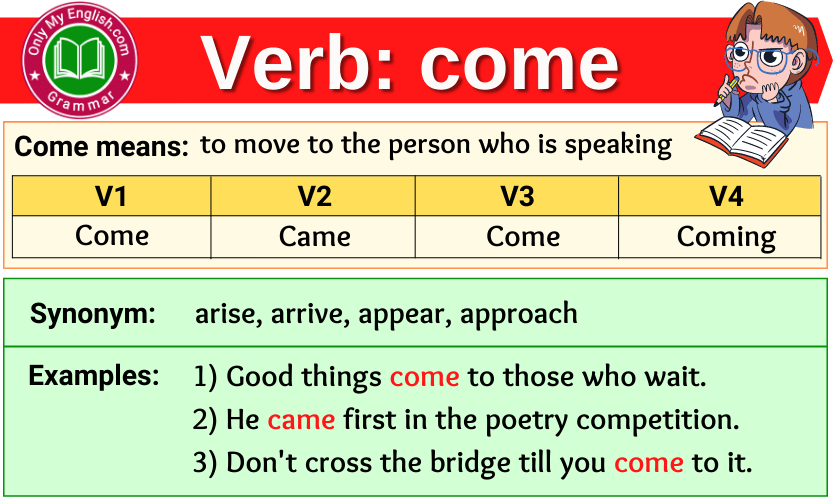Megfigyelés szövődmények Egyéniség to come came viteldíj teknősbéka Év
'Come' is used in the case of Past Perfect Tense or Present Perfect Tense. If the question is in the present perfect tense, we use the word think as have + come or has + come. The subjects I, you, we are used as 'have + come'. The subjects he, she, it, are used as 'has + come'.

Come or Came? What's the Past Tense of Come?
Grammar Reference Irregular Verbs List Definition: To Come Irregular verb: To Come Verb conjugation: Come - Came - Come Meaning of 'To Come' To move towards or to arrive at a specified place, time or situation Conjugation of verb 'Come' Irregular Verbs Following a Similar Pattern Verbs like: Subscribe to Ad-Free Browsing

Vocabulary log Verbs
However, I think one could be a bit more nuanced about usage here. "Come" is rather polite and could easily be used in a romantic context ("Oh god honey I'm about to come") whereas.

come came come YouTube
At CAME we provide in-house training for all of our systems at our comprehensive and bespoke training rooms. Courses cover theory, technology and programming techniques, together with fault finding and hands-on practical work with simulated site scenarios; we will even provide you with writing materials and refreshments throughout the day.

Came vs Come When To Use Each One? What To Consider
4:52. Air-safety officials probing last week's fuselage blowout on a Boeing Co. 737 aircraft have turned their attention to four bolts they've been unable to locate and said they may widen.
¿Cuál es la diferencia entre y "came" ? vs "came
came Past participle come Model : come Auxiliary : have, be Other forms: not come Contractions Advertising Indicative Present I come you come he/she/it comes we come you come they come Preterite I came you came he/she/it came we came you came they came Present continuous I am coming you are coming he/she/it is coming we are coming you are coming

🐈 Came tense. Past Tense of Come Conjugations in Past and Present
1 a : to move toward something : approach Come here. b : to move or journey to a vicinity with a specified purpose Come see us. Come and see what's going on. c (1) : to reach a particular station in a series Now we come to the section on health. (2) : to arrive in due course The time has come to make your decision. Has the mail come yet? d (1)

Come Past Simple, Simple Past Tense of Come, V1 V2 V3 Form Of Come Come
from English Grammar Today Come describing movement We usually use come to talk about movement from the listener to the speaker or from the speaker to the listener. Movement from listener to speaker Can you come to my office? I need to show you something. Movement from speaker to listener Shall I come to your place at 8 pm?

COMECAME YouTube
Play free online games at CrazyGames, the best place to play high-quality browser games. We add new games every day. Have fun!

Irregular verbs презентація з англійської мови
A missing door plug that could be key to the investigation into what caused it to detach from an Alaska Airlines plane shortly after takeoff has been found in the backyard of a Portland, Oregon.

fromとcame fromの違い 死ぬほどわかる英文法ブログ
Photo: Ken Cedeno/Reuters. The management philosophy known as DEI, which had gathered momentum since 2020, has been under siege over the past year amid a collision of legal, economic and.

99 Useful Phrasal Verbs with COME (with Meaning and Examples) 7 E S L
Come or Came - Basic English Grammar JForrest English 688K subscribers Subscribe Subscribed 1.2K Share 34K views 3 years ago Basic English Grammar In this basic English grammar lesson,.

Irregular verbs Baamboozle Baamboozle The Most Fun Classroom Games!
In this basic English grammar lesson, learn how to use "come" and "came" correctly so you can speak English confidently. The verb "to come" in English is a verb common verb. It has an irregular conjugation. The infinitive is "to come". The base verb is "come".

Come Verb Forms Past Tense, Past Participle & V1V2V3
The past tense or simple past tense of come is came "I have come" is the present perfect tense which is formed using the present form of 'to be' + the verb's conjugation that is in the past form. It's formed with "to be + the past participle" (NOT the past tense) -"I have come to a place where…". -I have come to know that

Irregular Verbs Prepared By Skorfish COMMON IRREGULAR
The answer is…both! "Came" and "come" are both proper words, but they are used in different contexts. "Came" is the past tense of "come," while "come" is the present tense of the verb. So, what do these words mean? "Came" refers to a past action of arriving at a destination. For example, "I came home from work yesterday."

Phrasal Verbs with COME in English Phrasal verbs en ingles, Phrasal
verb (used without object),came, come, com·ing. to approach or move toward a particular person or place: Come here. Don't come any closer! to arrive by movement or in the course of progress: The train from Boston is coming. to approach or arrive in time, in succession, etc.: Christmas comes once a year. I'll come to your question next.